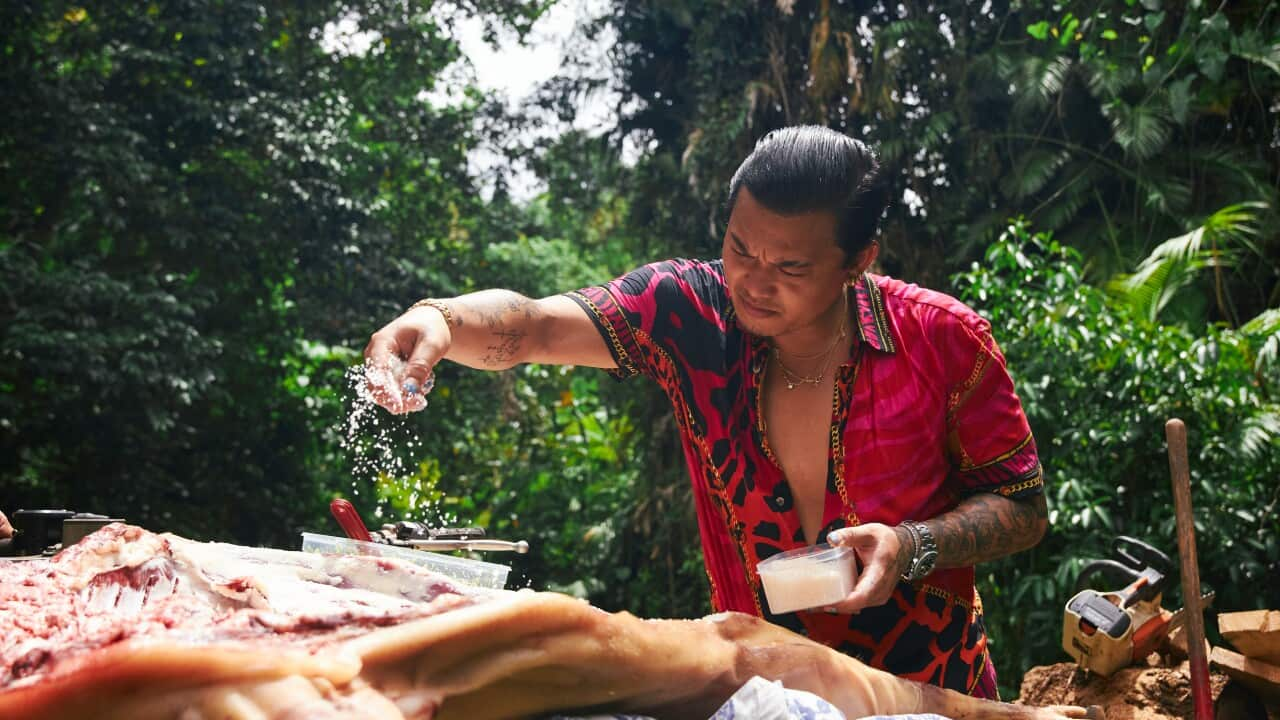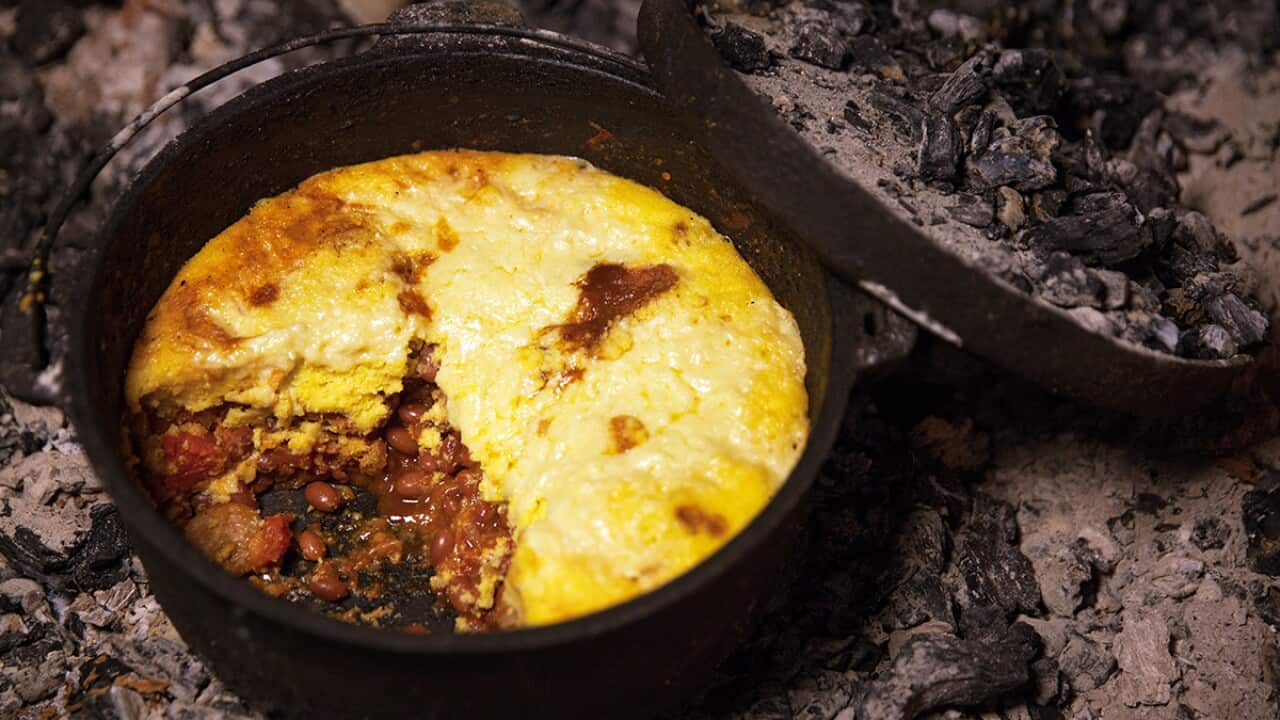--- Stream or watch live on SBS Food (channel 33), 5:30pm Saturdays. For recipes, articles and more visit . ---
TV cook and reality show star, Khanh Ong, has gone wild.
During the filming of his new 10-episode cooking series, Khanh Ong’s Wild Food on SBS Food, Ong dived for fish, foraged for native ingredients and hunted wild boar, all for the sake of learning how to cook in the great Australian outdoors.
“Cooking in the wild is in your blood,” Ong tells SBS. “If I can do it, you can too.”
We asked for his top 10 tips to help you experience cooking in the wild.
1. Get ready to work
If you want to cook in the wild, you need to embrace the idea of sourcing your ingredients from nature. “We had to hunt wild boar on the show – do you know how cool it was to cook a wild boar on a fire that we built? It was just the best experience. I also gained an even greater respect for the ingredients I hunted for because I knew how much work had gone into sourcing it.”
2. Don't emulsify sauces in the sun
Ong advises budding outdoor cooks to be open to learning new things. “I learned a lot during the series,” he says. “There were moments during filming where things went wrong. I learned not to emulsify a sauce outdoors when the sun is strong! The fun of cooking is that things don’t always need to be perfect."
3. Embrace the weather
You can’t control the weather but you can decide whether you cook in it. “When we were filming one of the episodes, it started to bucket down. The longer I cooked for, the wetter I got. In the end, I got drenched and the dish ended up looking like soup but it was delicious. Dealing with the elements is all part of the fun when you’re cooking outdoors. It’s what makes it more exciting.”

Source: Khanh Ong's Wild Food
4. Source from your surroundings
When you’re cooking in the wild, it’s always fun to try new ingredients sourced safely from your surroundings (if in doubt, don't eat it).
One of Ong's favourite dishes from the series featured an ingredient he was initially reluctant to cook: whelks (sea snails). “I was really scared about cooking them. But I just put them over the flame and they popped open. I pulled them out of the shell and they were beautiful. They tasted delicious.”
5. Get down and dirty
“I really hate gutting fish. I’ve always hated doing it at home. But out in the wild, when you catch fish, you’ve got to gut it. It wasn’t a pleasant experience and I had to get my head around it to do it. But I did it.”
6. Prepare, don’t cook
Remember that there are some foods that don’t need cooking, only preparation. Take oysters from Coffin Bay for example. “They were perfect as they were to be eaten, straight out of the ocean. So there was no point in doing anything to them. I just made sauces to go with them.” Delicious.
7. Bring the heat
When you actually do need to cook, you’ve got to do whatever it takes to keep the flame alive. “Cooking outdoors is all about keeping that fire going. You need to make sure you know how to work with fire and respect the flame as well.”

Source: Khanh Ong's Wild Food
8. Choose hearty veg and whole fish
“Always opt for a hot flame to char your meats over low and slow. When you do vegetables, choose hearty ones that can withstand the intensity of the fire.
"Seafood also cooks great on an open flame. You can cook a whole fish with its scales intact on coals, as the scales protect the fish from the flames. Let the chars go black and then, when you’re finished cooking, just scrape them off.”
9. Do your research
Before you head out into the Australian wild, research where you can and can’t light a fire outdoors. “You can't just go to any beach in Australia and light a fire to cook on. You need to be educated about where you go and safety.”
10. When in doubt, practice
Finally, Ong recommends that beginners start building their outdoor cooking skills by experimenting in their own backyards (if they have one).
“If you experiment at home before you go out into the wild, you will know what works well and what doesn’t. Then, by the time you do venture out, you’ll feel a lot more prepared.”





